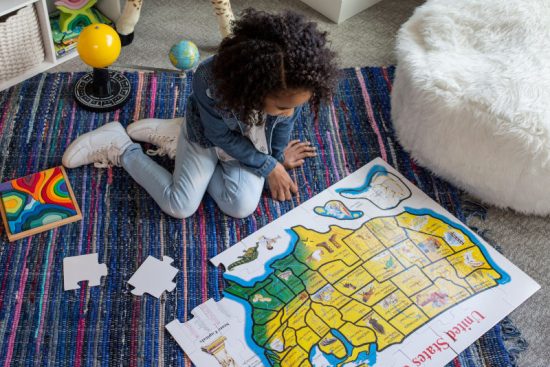
Encouraging a growth mindset in children is essential for their development. It teaches them to accept challenges, persist through setbacks, and view effort as a key to improvement. Both parents and educators play crucial roles in cultivating this mindset, shaping how children perceive their abilities and approach learning.
In today’s competitive environment, children encounter many challenges that can affect their confidence and willingness to take risks. This article explores effective strategies for promoting a growth mindset in children.
Role of Parents
Parents are the first and most influential teachers in a child’s life. Their attitudes, behaviors, and beliefs significantly shape how children view themselves and their abilities. Parents should focus on praising effort rather than innate talent to encourage a growth mindset. For example, parents can say, “You are so smart” instead of saying, “You worked hard on that project.” This shift in language emphasizes the importance of effort and perseverance, helping children understand that their abilities can improve with hard work.
In addition to praising effort, parents can model a growth mindset through their actions and attitudes. When parents demonstrate resilience in the face of challenges and openly discuss their learning processes, children learn to see setbacks as opportunities for growth. Creating a positive home environment where mistakes are viewed as learning experiences can foster a growth mindset. Parents can encourage their children to take on new challenges, explore different interests, and persist even when tasks become difficult.
Role of Educators
Educators and social workers play a crucial role in fostering a growth mindset in children, especially within educational settings. Teachers have the unique opportunity to influence how children perceive their abilities through daily interactions and teaching methods. Educators can encourage students to take risks and learn from their mistakes by creating a supportive and inclusive classroom environment. Strategies such as providing constructive feedback, celebrating progress, and incorporating growth mindset language into the curriculum can help students understand that their abilities can develop over time.
Social workers also significantly promote a growth mindset in children, particularly those facing challenging circumstances. A master’s degree in social work prepares professionals to support children’s mental and emotional development, equipping them with the skills to address various issues that may impact learning. These professionals can work alongside educators to implement programs and interventions that promote resilience and positive self-belief. Look up the keyword social work master degree on any search engine to learn more about this advanced program.
Encourage Learning from Mistakes
One of the most effective ways to foster a growth mindset is by normalizing mistakes as part of the learning process. Parents and educators should emphasize that making mistakes is acceptable and a valuable learning opportunity. By creating environments where children feel safe to take risks and make errors, adults can help them develop the confidence to try new things and learn from their experiences. This approach encourages children to view setbacks as temporary and surmountable rather than reflections of their abilities.

Parents can support this mindset at home by sharing stories of their mistakes and the lessons learned from them. Similarly, educators can create classroom activities celebrating mistakes as part of the learning journey. For instance, teachers can use error analysis exercises where students identify and correct mistakes in their work, fostering a sense of curiosity and problem-solving. Providing constructive feedback focusing on improvement and effort rather than solely on the end outcome helps reinforce the idea that abilities can grow with practice and persistence.
Promoting Curiosity and a Love for Learning
Promoting curiosity and a love for learning is essential in developing a growth mindset in children. Curiosity drives children to explore, ask questions, and seek new knowledge. Parents and educators can nurture this curiosity by creating stimulating environments encouraging exploration and discovery. This can be achieved through activities that spark interest, such as science experiments, art projects, and interactive learning experiences. Encouraging children to pursue their interests and passions helps them develop a deeper love for learning.
Educators can integrate curiosity-driven learning into the curriculum by incorporating inquiry-based learning methods. This approach allows students to actively participate in their education, exploring topics that interest them and asking questions to guide their learning. Providing opportunities for hands-on learning, field trips, and projects can also enhance students’ engagement and curiosity.
Setting Realistic Goals and Celebrating Progress
Helping children set realistic goals and celebrating their progress is another key strategy for fostering a growth mindset. Setting achievable goals allows children to experience success and build confidence in their abilities. Parents and educators can guide children in setting specific, measurable, attainable, relevant, and time-bound (SMART) goals. This process helps children focus on their efforts and understand that progress is made step-by-step.

Celebrating progress, no matter how small, reinforces the idea that effort leads to improvement. Parents can celebrate their children’s achievements by acknowledging their hard work and dedication. Similarly, educators can recognize students’ progress through positive feedback, rewards, and public acknowledgment in the classroom.
Encouraging Positive Self-Talk and Resilience
Teaching children to engage in positive self-talk and develop resilience is crucial for maintaining a growth mindset. Positive self-talk involves encouraging oneself with affirming statements, which can help children build self-confidence and overcome challenges. Parents and educators can model positive self-talk by verbalizing affirmations and encouraging children to do the same. For example, instead of saying, “I can’t do this,” children can learn to say, “I can improve with practice.”
Resilience, the ability to bounce back from setbacks, is another important aspect of a growth mindset. Parents and educators can help children develop resilience by teaching them coping strategies and providing support during difficult times. Encouraging children to view challenges as opportunities to learn and grow helps them build the mental strength to persevere. Activities such as role-playing scenarios, reading stories about overcoming adversity, and discussing past experiences of resilience can reinforce these concepts.
Conclusion
Fostering a growth mindset in children is a collaborative effort between parents and educators. By enhancing their roles and implementing effective strategies, such as praising effort, creating supportive environments, promoting curiosity, setting realistic goals, and encouraging positive self-talk and resilience, we can help children develop the skills and attitudes needed for lifelong success. Together, these efforts create a foundation for children to embrace challenges, persist through setbacks, and continually strive for improvement.




